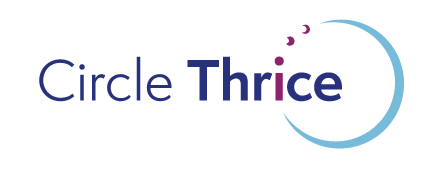In my reading on habits and habit formation one thing that strikes me is just how much of our daily lives are driven by habit. It’s really the rule, rather than the exception. In fact, we probably couldn’t function in our lives without the ability to transform our repeated actions into semi-conscious habits. And that’s because as soon as we form a habit, our brain stops consciously thinking about it.
My favorite example is the drive to and from work (or school or wherever you drive regularly). Driving is a high-order and very complex skill. It requires ongoing attention and thought to handle not only the complexities of navigating a 3000 pound metal contraption, but also the other drivers, riders, and pedestrians doing the same in complex traffic patterns… or does it?
Of course, driving does require skill and attention, which is why being on your phone in the car is so very dangerous. But at the same time, our daily trek to work can be habituated to the degree that we can spend the entire drive deep in thought and be surprised when we arrive. Ever decide to run an errand on the way home and then suddenly find yourself pulling up in your driveway without the milk?
Here’s what your brain is doing when that happens. First, there’s this trigger or cue to start your habit. In this case, it’s getting into your car after work. Your brain knows that it knows the way home, so it off-loads most of the work (how to operate the car’s controls, the basics of driving, and the route you take) to your subconscious. However, it also keeps part of your conscious attention on the road to look for triggers outside your normal habit routine. This includes vehicles in your path, accidents or detours, atypical traffic patterns (like pedestrians in the street or someone running a light). So most of the work is done by your subconscious while your conscious mind supervises.
Our brains are actually very good at this, which is why we’re a) not all dead in car wrecks already and b) able to replay the most recent exchange with our boss or think about what to make for dinner while we’re driving.
In fact, the reason this works is because “drive home from work” isn’t one habit, but a huge interrelated set of mini-habits. All the little skills that go into driving, detailed navigation, traffic rules and pattern recognition. It’s a giant mass of little habit bits all strung together.
What’s amazing to me is how much of my day can be governed by long chains of habits like this. My whole morning routine is very habituated (which it needs to be since I’m not even really awake for most of it).* Chunks of my day at work are driven by habits, despite the fact that my work is in no way rote or repetitive (one of the things I love about it is that it constantly poses new challenges and situations). And in addition to my drive home, some of my evening and most of my bedtime routines are, well routine — even though I don’t go to bed at the same time every day. And I even have weekend habits that push me to certain activities and behaviors, regardless of what else I’m up to.
It’s important that we see this in the correct light. It’s not bad that we create habits. We have to in order to give ourselves time to do all the other thinking we do. When I sit down to write a Circle Thrice post or work on the Lunation Rite or plan my upcoming year… that’s new stuff. It’s not a habit… and it probably won’t ever be a habit because I’m creating it fresh. So it’s good that I don’t have to spend a lot of time thinking about my morning bathroom routine or I’d never have the mental energy left over for the good stuff.
Most of the habit stuff I’m reading is about changing habits — making good ones and getting rid of bad ones. And that makes sense. After all, if I was perfectly happy with everything I did all the time, well, I wouldn’t need to read habit books. So yeah, changing habits is useful stuff. But let’s start by acknowledging the power that habits have to free us up for the really great creative work of living our best lives.
* You know those people who say that the key to success and productivity is to get up really early? Yeah, I am not one of those people.


